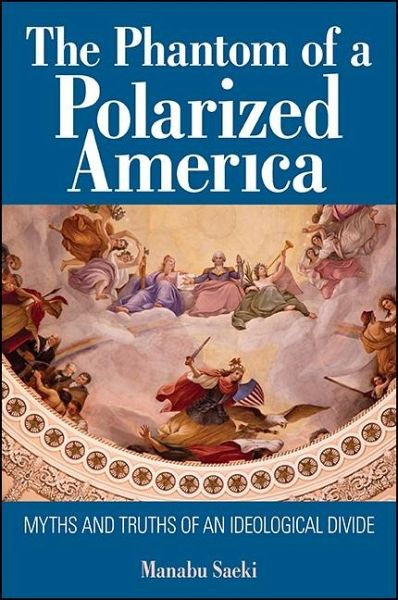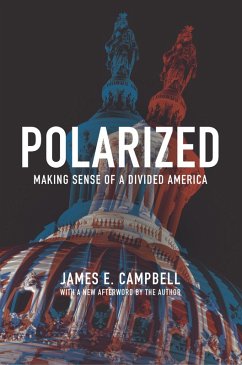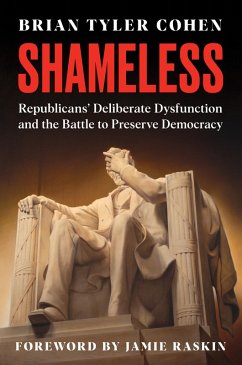
The Phantom of a Polarized America (eBook, ePUB)
Myths and Truths of an Ideological Divide
Versandkostenfrei!
Sofort per Download lieferbar
25,95 €
inkl. MwSt.
Weitere Ausgaben:

PAYBACK Punkte
13 °P sammeln!
Indicates how the rightward shift in the ideology of House Republicans has been mistaken for a broader "polarization" of both parties as well as voters.There is a widespread belief that American politics is becoming more polarized, in the sense that the Republican Party and electorate are becoming more conservative while the Democratic Party and electorate are becoming more liberal. But is this truly the case? The Phantom of a Polarized America places widely held scholarly assumptions about the "polarization" of American politics under the microscope and tests them to determine their veracity....
Indicates how the rightward shift in the ideology of House Republicans has been mistaken for a broader "polarization" of both parties as well as voters.
There is a widespread belief that American politics is becoming more polarized, in the sense that the Republican Party and electorate are becoming more conservative while the Democratic Party and electorate are becoming more liberal. But is this truly the case? The Phantom of a Polarized America places widely held scholarly assumptions about the "polarization" of American politics under the microscope and tests them to determine their veracity. In the case of Congress, Manabu Saeki reveals that contrary to popular beliefs, polarization is largely due to the rightward shift of Republican legislators without any corresponding leftward shift by Democratic legislators. The conservative shift of House Republican ideology has produced a rightward shift of Republican voters, and conservative voters in the Democratic Party have switched to the Republican Party, resulting in a more liberal Democratic Party overall. Saeki concludes that the so-called "polarization" of American politics is largely a phantom being; in truth, it is a neo-conservative movement led by House Republicans.
There is a widespread belief that American politics is becoming more polarized, in the sense that the Republican Party and electorate are becoming more conservative while the Democratic Party and electorate are becoming more liberal. But is this truly the case? The Phantom of a Polarized America places widely held scholarly assumptions about the "polarization" of American politics under the microscope and tests them to determine their veracity. In the case of Congress, Manabu Saeki reveals that contrary to popular beliefs, polarization is largely due to the rightward shift of Republican legislators without any corresponding leftward shift by Democratic legislators. The conservative shift of House Republican ideology has produced a rightward shift of Republican voters, and conservative voters in the Democratic Party have switched to the Republican Party, resulting in a more liberal Democratic Party overall. Saeki concludes that the so-called "polarization" of American politics is largely a phantom being; in truth, it is a neo-conservative movement led by House Republicans.
Dieser Download kann aus rechtlichen Gründen nur mit Rechnungsadresse in A, D ausgeliefert werden.













